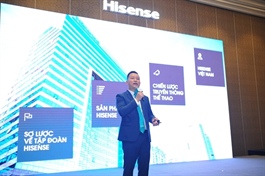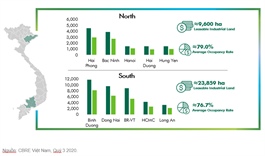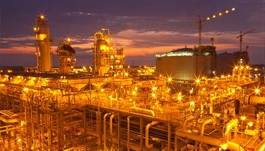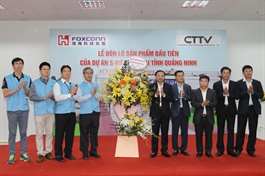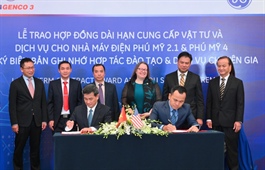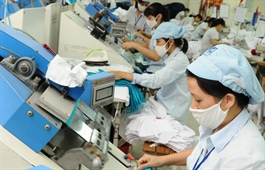Louis Vuitton, Christian Dior join Hanoi luxury market
Louis Vuitton, Christian Dior join Hanoi luxury market
Leasing flagship stores of Louis Vuitton and Christian Dior show stronger sentiment towards luxury brands in Vietnam.
Louis Vuitton and Christian Dior leasing flagship stores have showed up in Hanoi, largely contributing to the bustling luxury market in the capital city with higher spending power than the national average.

Louis Vuitton and Christian Dior leasing flagship stores in Hanoi. Photo: Savills Vietnam
|
Located at the International Center in central Hanoi, Louis Vuitton and Christian Dior cover more than 1,000 sq.m and 500 sq.m, respectively, according to Savills Vietnam, which has advised the two global well-known brands on a prime commercial refurbishment in central Hanoi.
Originally developed in 1995, the International Center and nearby area become hubs in the center of Hanoi for prime luxury district with brands such as Prada, Hermès, Gucci, Patek Philippe, Hublot, Christian Louboutin, Mont Blanc, Cartier, Hugo Boss, Bottega, Kenzo, and Valentino.
Matthew Powell, director of Savills Hanoi, and Hoang Dieu Trang, senior manager in the Commercial Agency team, began discussions with both LVMH brands in December 2018 with leases finally completed in April 2020.
“That Louis Vuitton and Christian Dior have demonstrated their belief in the Vietnam luxury segment during a troublesome global retail market is a very good indication of Vietnam’s growing capacity and long-term term development. These locations are super-prime in Hanoi and I’m sure will be the home of Louis Vuitton and Dior for many years to come,” said Matthew.
Prospect of Vietnam’s luxury retail market
According to Savills Vietnam, the luxury retail market in Vietnam remains stable with retailers confident with domestic demand, which the lack of international travel has concentrated even further.
For prime spaces there is still strong demand from retailers and upward pressure on rentals. In the wider retail market, certain categories continue to thrive with more openings in recent months. Occupancy in general has remained stable with increased landlord and retailer confidence apparent.
Savills Vietnam has attributed Vietnam’s macroeconomic indicators to the prospect of the luxury retail market.
Vietnam is set to be one of the few countries in the region to deliver positive GDP growth in 2020. The ADB forecasts Vietnam's GDP growth to ease back to 1.8% in 2020 and rebound to 6.3% in 2021. Vietnam is expected to maintain economic stability and remain one of the fastest growing Southeast Asian nations.
Vietnam’s ability to successfully contain the pandemic has received much praise from around the world and has set the economy up for a faster recovery than most regional peers.
A trade surplus has been one factor helping to ensure a stable currency, giving foreign investors even greater confidence.
The rapidly growing middle class is at an inflection point, with GDP per capita approaching US$3,000, demonstrating huge potential for domestic consumer spending growth. This also supports greater demand for real estate and continued real estate price growth.
The continuing trade war between the US and China, as well as increasing salaries in China, will result in further manufacturing and FDI shifts to Vietnam.
In early 2021, the National Party Congress is scheduled to select key government officials for the next five years, providing political stability and faster decision making. This will result in greater spending on key infrastructure projects, further benefiting the real estate sector.







